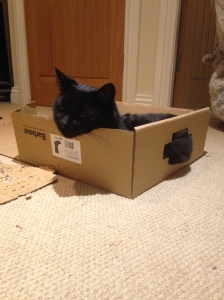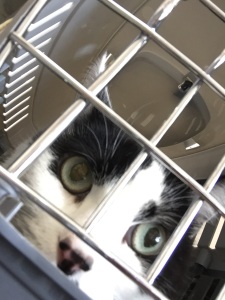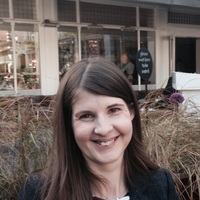Yesterday I went to Sheffield University as part of my research monitoring role with the Alzheimers society. Projects that are funded by the society are monitored to ensure money is spent as it was intended but more importantly to hear all about the wonderful work and issues encountered by the researchers themselves.
As many of you know, research is a passion of mine and many researchers have become good friends over the last year. Their enthusiasm and passion gives me hope for the future.
Yesterday’s project at Sheffield is headed by Professor Pat Sikes and Dr Mel Hall. They are looking into the experience of children when a parent is diagnosed with dementia. I last visited in early summer last year so was keen to hear how it was progressing.
By the by, Professor Pat and I share a passion for our cats. In my case Billy and in her case, Neville……..what tales they could tell if only they could get together and have a chat!


Back to yesterday……the day started off very damp, dull and grey but at least my train was on time and at least it was a direct train! Since I moved, I’ve been having problems with journeys where I have to change as the routes are new and unfamiliar, which didn’t use to bother me but now appear to be an issue. It’s made me less confident when travelling which is a very new experience for someone who always use to travel here there and everywhere quite happily. Hopefully the anxieties will pass……..
I’d printed off a picture of my destination and had instruction from Pat as to where I was heading when I got there. Last time I had playmates in the form of 2 fellow monitors, June and Louise, but neither could make this meeting so I was on my own.
Anyone with an interest in finding out how research happens can become a research monitor with the Alzheimers society. To share and listen to the passion, trials and tribulations and offer encouragement is such a wonderful experience. You can give as little or as much time as you have available. We need far more people to help, especially those with dementia. More details can be found at:
https://www.alzheimers.org.uk/site/scripts/documents_info.php?documentID=1109
The taxi got me there fine – the picture I had with me even helped the taxi driver! I went up to Pat’s office to find her beavering away. Once Mel had arrived and supplied us with tea, they began to fill me in about the project.
They’re now in their second year and have participants ranging from 8 – 31 (the older people were able to give retrospective feedback of their experience since childhood)
They’d written several papers about the project.It was sad to hear that some were turned down due to the lack of findings. How lacking in foresight – the ‘story’ of the project would be rich in detail and would make interesting reading.
Mel had written a paper on how to maintain relationships when a parent has dementia. I was amazed at the children’s resourcefulness. For example one young guy asked his mum to make him a cuppa each evening. Many people would see this as selfishness but the young man did this because it was the one thing his mum could still do which showed she was still his mum – magic.
Pat wrote a paper she described as controversial. There is much talk of people with dementia ‘still being the same person’. The young people were challenging this concept – ‘if they were the same person they wouldn’t be behaving like this’. Not everyone can live well with dementia and often their loved ones can’t either. There was much ‘grimness’ in the words the children spoke.
My reaction to this was that of course there would be grimness. Life isn’t always as we would wish. In their young lives they were being ‘robbed’ of the very people who were suppose to look out for them in life.
Their identity as a son or daughter has been lost as they’re now doing the parenting.
They were grieving for what they won’t have in the future. They were sorrowful at the thought of not having their parent at their graduation, their wedding and not being a grandparent to their children. Youngsters often have an idealistic fairy tale view of the future which makes all these issues seem even more important. There may be unresolved family issues from the past. When a parent has terminal cancer, these issues can be resolved and addressed; when a parent has dementia this is no longer possible. They need to know it’s ok to be angry, sad, and simply OK to have the thoughts they do…..
We mustn’t hide this reality of their situation just because it doesn’t fit in with the current view of ‘living well with dementia’.My belief is that not everyone does live well, but with support and guidance we can teach people how to live as well as possible. Not everyone is capable of thinking up strategies alone; they need support. Whilst I always advocate the ‘positives’, I also acknowledge that there are those who find positive thinking a challenge. They may always have been like this with or without dementia.
It goes back to my usual rant of ‘no-one gives you a handbook’. When a person gets a diagnosis of dementia, the whole family gets the diagnosis and needs help and support. What happens to the children if the partner of the person can’t handle the diagnosis? – it must affect the whole family. Adults find the concept of needing ‘training’ on how to look after a loved one with dementia difficult to accept, so how hard must it be for children to understand the concept that their mum or dad is no longer capable of ‘looking after them’ as a mum and dad. We mustn’t ‘hide’ their difficulty simply because we’re trying to promote living positively. What we must encourage and promote is the children’s resourcefulness – just like the young man who wanted his mum to make him a cuppa, because she still could………
Pat and Mel told me they’d presented a couple of papers in Toronto at an International qualitative health research conference. They’d been put in the ‘older person’ section – simply because the organisers had seen the word ‘dementia’ and made the usual assumptions. However, this did mean they had a different audience who were moved to tears at the stories they told about their young participants.
They are looking into trying to get more publicity for their project and the Alzheimers society is helping with some strands of this. They have turned down some offers simply because the newspapers have been after ‘sensationalism’ and this would be doing the youngsters a disservice. For instance the difficulty the gay participant has every time he sees his mum as she forgets he’s gay….. Jim Reed, who made the BBC film I contributed to last year would be the perfect collaborator to highlight the issue of the children. I know he would deal with it sympathetically.
The stats say that one fifth of those diagnosed with dementia are those with young onset – that’s over 42,000 people who may or may not have children. Very little support is given at all to adults, so imagine what it must be like for children. How on earth do they make sense of it all. In their young lives they may not have seen the real character of their parents yet – we don’t as children – so how can they make sense of changing behaviour, which to them seems plain wrong?
They’re hoping to get a spot on a Radio 1 question programme and this may help to get to more young people and show them that there are people out there who will listen. More services are needed for this vulnerable group. Just like adults need peer support, so do children. They can be helped to deal with their feelings and to understand them.The experience they’re having could affect their whole life and be damaging the quality and experience of their future years.
They spoke of their plans for dissemination and are organising a conference to launch the project in July with some of the young participants telling their stories – I’d love an invite (hint hint!)
The last time I saw them they were starting to look at producing an animation to help children. Well they’ve now put in a bid with the Welcomme foundation for funding. They find out in February whether they’ve been successful. Everything’s crossed……
Behaviours are manifested before diagnosis. Children must be given the OK to express their views. Children’s voices have often gone unheard in the world of research and this project is giving them a voice.These issues loom large in their world. There has to be some way of saying to them, ‘ you’re not weird, you’re ok and the thoughts and feeling you’re having are normal reactions’.
To say that Professor Pat and Dr Mel are committed is an understatement. Pat herself said:
‘I can’t think that I’ve done anything as important as this’
Let’s hope we can find a way of getting them more publicity for this worthwhile project that’s affecting so many in silence……..If I hadn’t been diagnosed with dementia I wouldn’t have been lucky enough to have met such wonderful people as Pat and Mel – so every cloud…………
Can’t believe I didn’t take a photo of the 3 of us! But here’s Pat and Mel for the record……


I have just read the post and I am so moved. Thank you for this – your, and our – passion shines through. And Neville – who is beside me – wants me to ask if you will be his agent. Here he is – earlier today…
[image: image1.JPG]
See through ears! Thank you. Xxxxxx
Sent from my iPad
LikeLike
Xx😊
LikeLike
I totally agree with what you’ve said, Wendy, about not denying the negatives in the desire to push forward the living well with dementia message. It feels like your reality is being denied when this positive slant is constantly thrown at you.
LikeLike
Thanks Wendy,
This is such an important area, bringing the voices of all those involved to the fore.
Rod
LikeLiked by 1 person
Wendy, i need to find your blog that addressed the terms used that are so offensive like, victim. Could you direct me to the blog or date, please?
Priscilla
LikeLike
Hi Priscilla – it was published on the 21st September – I think this link takes you to it – https://whichmeamitoday.wordpress.com/wp-admin/post.php?post=1920&action
LikeLike